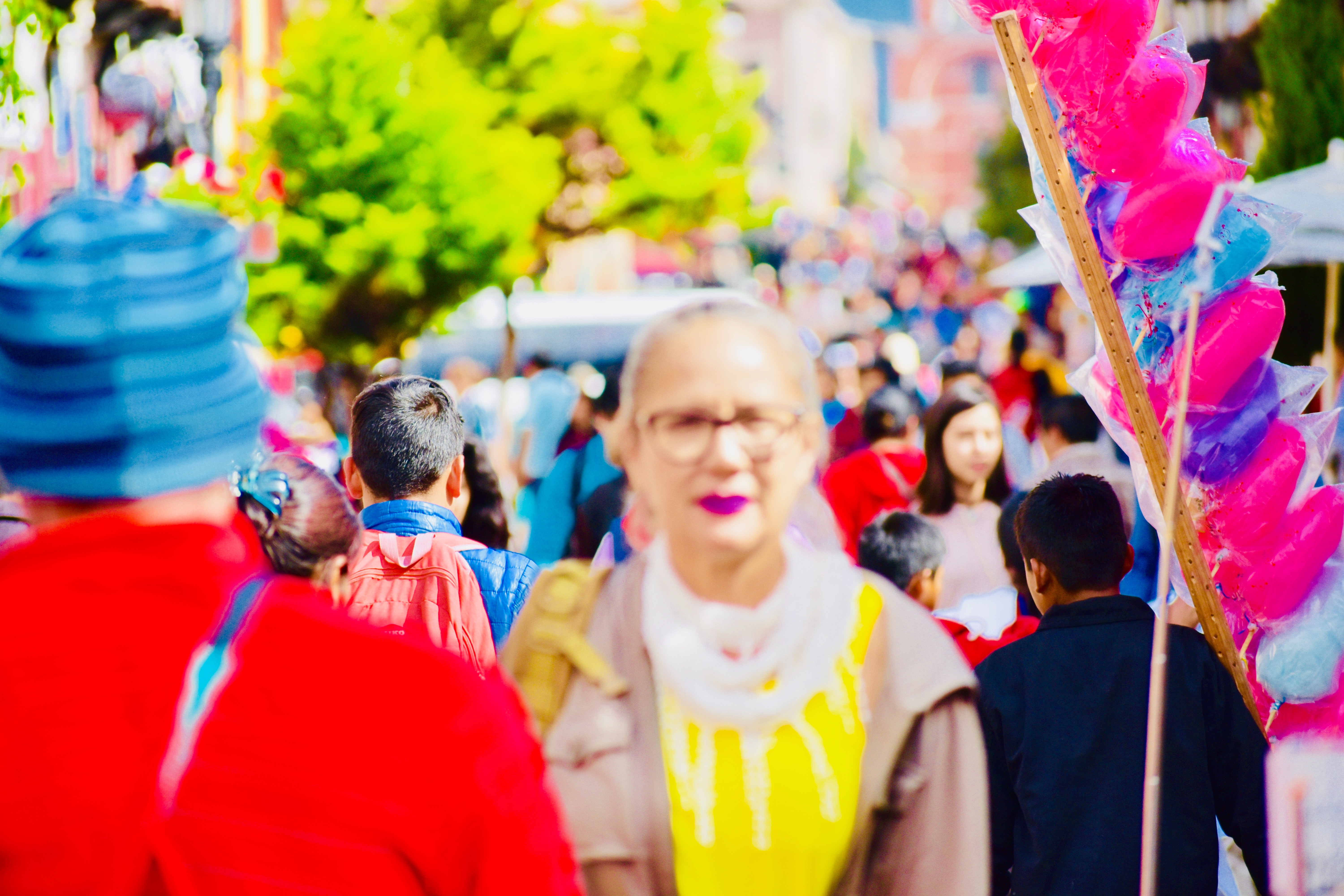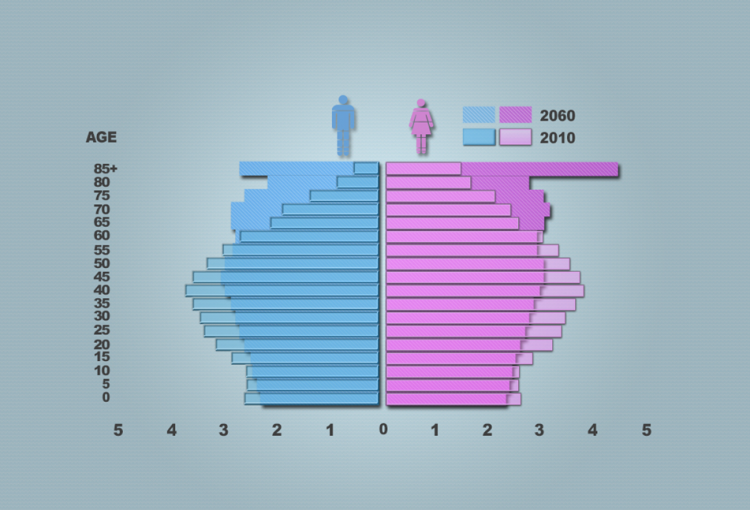Why do I want to live in a world for all ages?

How old will we be in 2060 – the year in which older women over the age of 85 will constitute the largest group in society? If, as Liat Ayalon, we were all in capacity to project our older selves into the future, maybe we would all realize the importance of building up a society for all ages already now.
A few years ago, I gave a talk in my daughter’s school. I showed the age pyramid to second graders in order to demonstrate that the world is changing and that soon enough, the largest demographic group in Europe will be that of women over the age of 85. I wasn’t really sure whether or not the students would grasp the magnitude of the change as they were young and might not have had prior training in reading this type of complex diagrams. But the minute I showed them the diagrams, their mouth opened and they were completely shocked by the tremendous changes our world was about to experience. Nonetheless, their first question to me was how old would I be in 2060, the year in which older women over the age of 85 will constitute the largest group in society.

This has made me realize that the fight to ensure that we all live in a world for all ages, in which age is no longer a barrier or a hurdle we have to hide, conceal or be ashamed of is not only for the sake of the older people is society: my parents, uncles, aunts, neighbors and friends. It is my fight and the fight of my children to ensure that WE all live in a place that does not categorize us based on arbitrary characteristics such as age, does not homogenize us and see us as being all the same, simply because we have reached a certain age and does not diminish our rights for autonomy, respect, and self-fulfillment because of age.
There is more heterogeneity in old age than there is in any other period of our lives. This is because what we have done or not done over the years pays off and accumulates. Think of two women who were born extremely flexible, one has been a dancer all her life and the other quit dance school at the age of six and never moved her body since. Clearly, at the age of 8 or 10, the difference between them is substantial. However, at the age of 60, these two women are likely to have nothing in common physically. Moreover, we, as a society, group people in their 60’s and people in their 80’s together, using a single category of “OLD.” No other period in our lives, is as long and heterogeneous as this period, yet, the period of old age is seen as a single category. To ensure that we live in a world of all ages, we have to acknowledge diversity and celebrate it.
Age is just a number and it should not be used to determine our access to rights, services and opportunities. People’s rights should be respected unrelated to their age. We all should have the right to find meaning in our everyday lives, to contribute to society and even to make mistakes that jeopardize us. Currently, older adults’ rights are endangered simply because they have reached a certain age. In many countries worldwide, older adults are expected to retire and give up their skills, abilities, education and training for free simply because they have reached a certain age. Moreover, in many countries, age remains the only basis which is not explicitly banned for discrimination. Hence, to ensure that we all live in a world for all ages, we have to make sure that age is never a basis for opportunities and rights in our society.
Ageing is a normal occurrence. It happens from the time we are born. Yet, at a certain point in our life, ageing is assigned a negative connotation. Nonetheless, ageing and reaching old age are desired. These are normal parts of life. Ageing is not a disease or a loss we should fight. It is just a fact of life and an opportunity. We should celebrate the fact that the average lifespan is increasing in most countries and not take this for granted. It is an prospect that we should cherish as a society and as individuals, for the sake of our parents, older relatives, friends, ourselves, our children and grandchildren. We should all aim to live in a world for all ages.
—
Liat Ayalon is coordinator of the MSCA-ITM EuroAgeism international Ph.D. program (euroageism.eu) and researcher at the Bar Ilan University, Israel. She also chairs the COST IS1402 on ageism from a multi-national interdisciplinary perspective (notoageism.com).


Facebook Comments